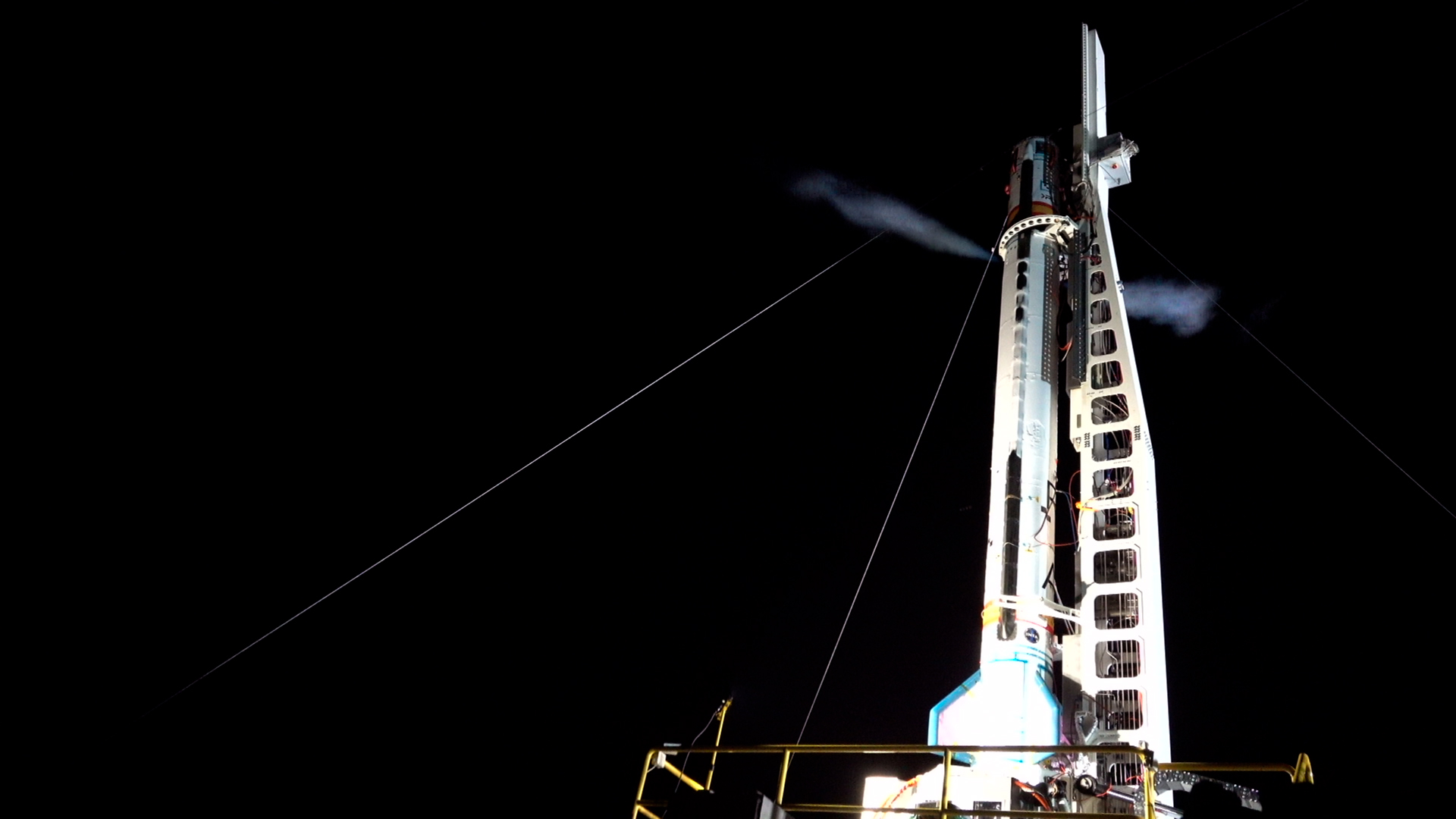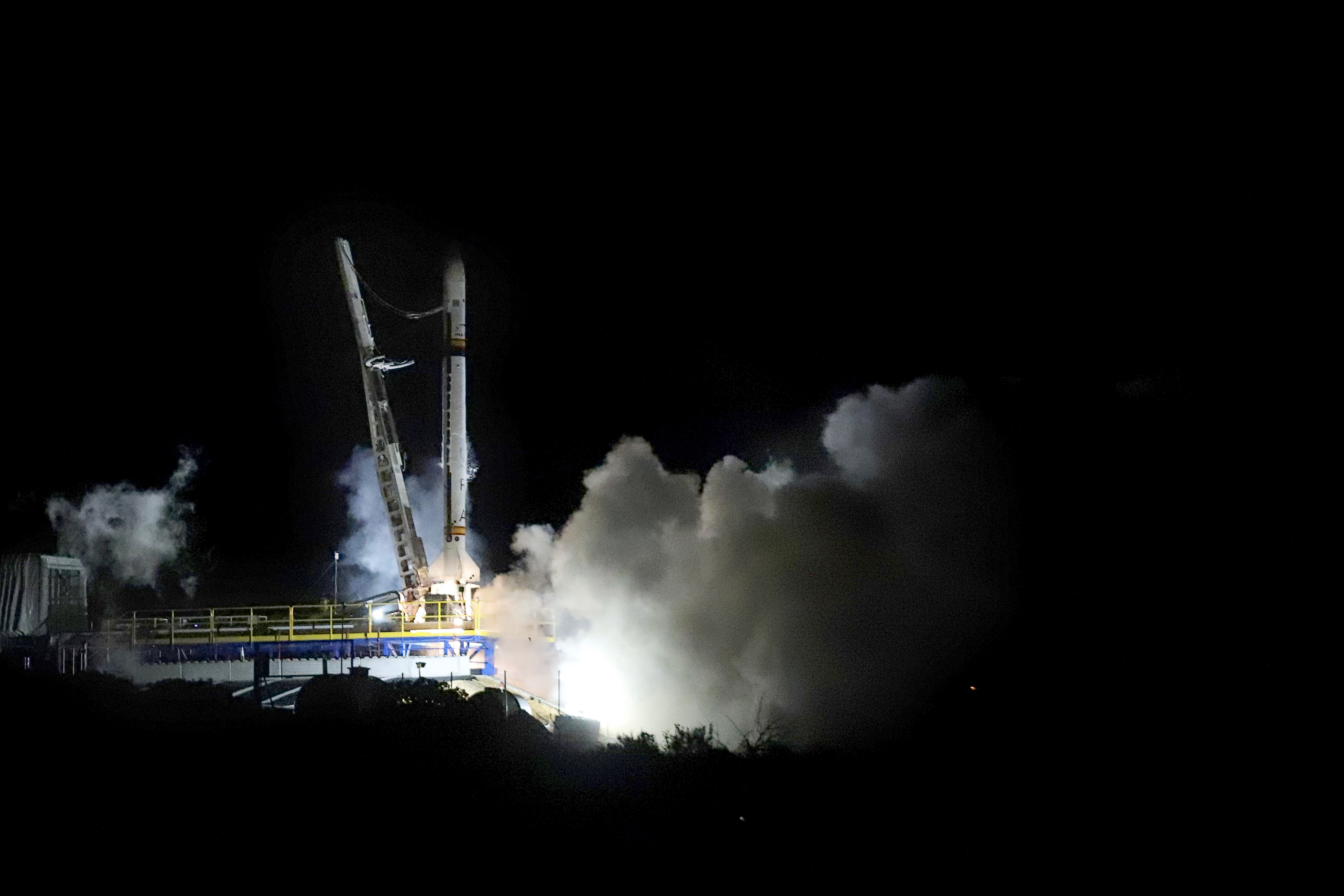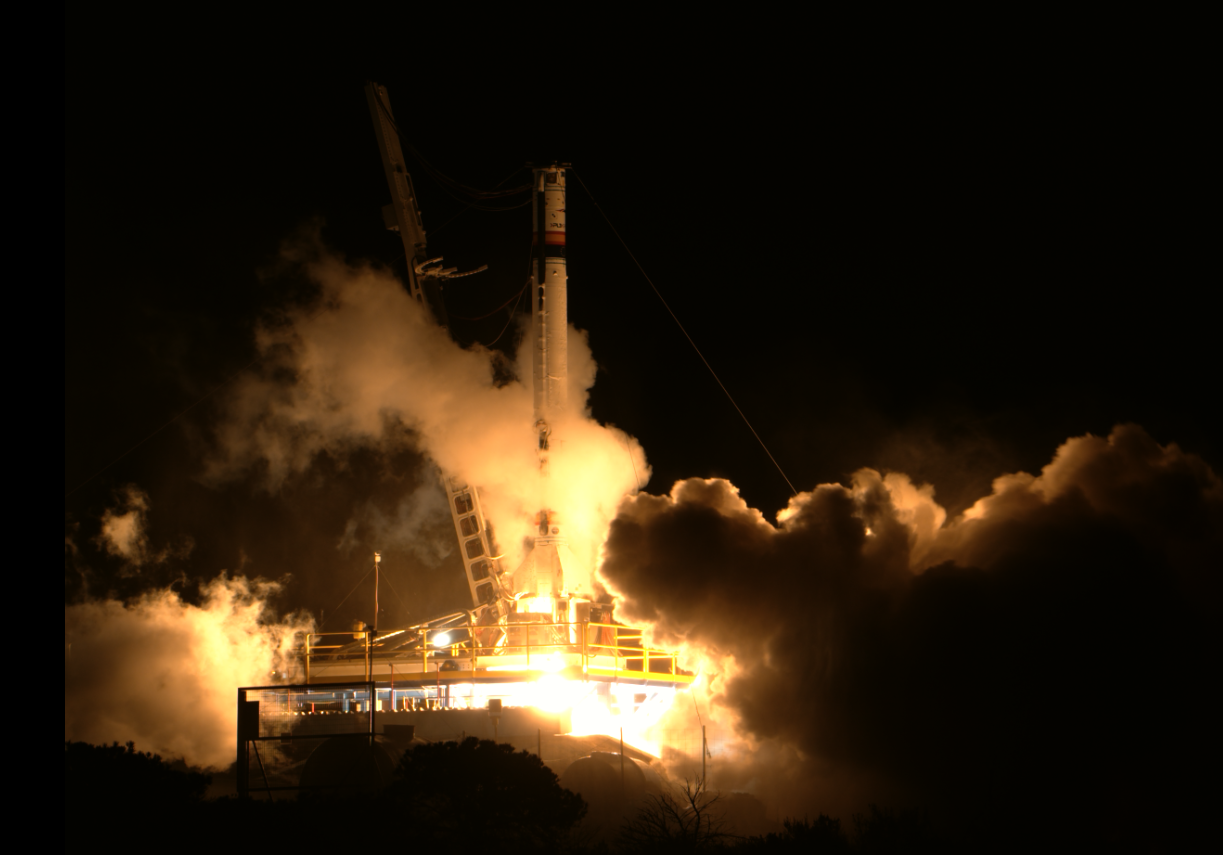
- The MIURA 1 suborbital launcher achieves all technical objectives for their successful maiden flight.
- The Spanish company thus consolidates its strong leadership position in the global space race.
- This milestone provides Spain with the opportunity for direct access to space and to generate a national and European strategic capability.
- MIURA 1 has recovery and reuse requirements that only three companies in the space industry have achieved
Huelva, 7 October 2023. The Spanish company PLD Space has made history after successfully completing the launch of the first private European rocket, MIURA 1. The maiden flight of its suborbital launcher showcases the advanced level of technology and know-how that has been developed by the company since 2011. This milestone achievement furthermore reinforces PLD Space's leading position in the global space race, while building national and European strategic capabilities.
The first launch of MIURA 1 took place at 02:19 CET (00:19 UTC) in the early hours of Saturday 7th October at the facilities of the El Arenosillo Experimentation Centre (CEDEA), belonging to the Spanish National Institute for Aerospace Technology (INTA). PLD Space has fulfilled the primary mission objectives related to engine thrust, trajectory tracking and launcher behaviour.
The flight lasted 306 seconds in which MIURA 1 reached apogee at an altitude of 46 kilometres. The mission concluded with the rocket landing in the Atlantic Ocean and the company will proceed with the work of recovering the rocket during the next few hours.
The launch also tested a technological device from the German Centre for Applied Space Technology and Microgravity (ZARM) under microgravity conditions. The data gathered during the flight will inform future experiments.
Following an in-depth analysis of the mission, PLD Space will publicly release the data collected during the inaugural MIURA 1 flight test.
After this historic milestone for Spain and Europe, PLD Space's Launch Director and co-founder, Raúl Torres, emphasizes, "This launch culminates over 12 years of relentless effort, yet it marks just the start of our journey." He adds, "This test flight has yielded valuable data, enabling us to validate crucial design elements and technologies that will underpin the development of our MIURA 5 orbital launcher."
Mission accomplished: PLD Space leads in sub-500kg launchers.
Miura 1 is the first rocket created by a private company in Europe. PLD Space has achieved something which only three companies in Europe has achieved which is to develop the technology of a rocket which is recoverable and reusable.
The launch of the MIURA 1 suborbital rocket comes 12 years after the creation of PLD Space by Raúl Torres and Raúl Verdú. With this maiden flight, the Spanish company marks a turning point in the European space race, where small satellites are revolutionising access to information to accelerate innovation in multiple sectors on Earth. With this launch, Spain becomes the tenth country in the world to have direct space capability. With this launch, Spain has become the tenth country in the world with the capacity to reach space.
"This launch establishes PLD Space as the frontrunner in the European space race. We ventured into space fuelled more by determination than resources, yet we triumphed," states the company's CEO, Ezequiel Sánchez. "The team's elation is visible. Indeed, the mission's success is a collective accomplishment, encompassing our investors, partners, and suppliers."
A key mission for the development of MIURA 5
PLD Space's Business Development Manager and co-founder, Raúl Verdú, concludes, " Looking to the immediate future, the success of a test flight like this is gauged by the insights we gain, insights that enhance our future reliability and success rate." He adds, "We developed MIURA 1 as a stepping stone to accelerate the technological advancement of MIURA 5. With this mission's success, our team is poised to rapidly progress towards the inaugural flight of MIURA 5 – our ultimate goal."
The inaugural suborbital flight of MIURA 1 marks a pivotal moment for the MIURA 5 orbital launcher's development. The data gathered will enable validation of nearly 70% of the design and technology set to be incorporated into MIURA 5.
At present, over 90% of the PLD Space team is dedicated to developing MIURA 5. Its maiden launch is scheduled for 2025 at the European spaceport CSG in Kourou, French Guiana, with commercial operations set to begin in 2026.
About PLD Space
PLD Space is a pioneering Spanish aerospace company and a benchmark reference in Europe for developing reusable rockets. With a solid reputation and steadfast commitment, the company has produced notable orbital launchers: the suborbital MIURA 1 and the orbital MIURA 5. These innovations position Spain among the select few nations capable of successfully deploying small satellites into space.
PLD Space was founded in 2011 by Raúl Torres and Raúl Verdú with the aim of facilitating access to space. The company, based in Elche (Alicante) and with technical facilities in Teruel, Huelva and French Guiana, has already raised more than 65 million euros of investment to boost its space sector project and has a team of more than 150 professionals.










